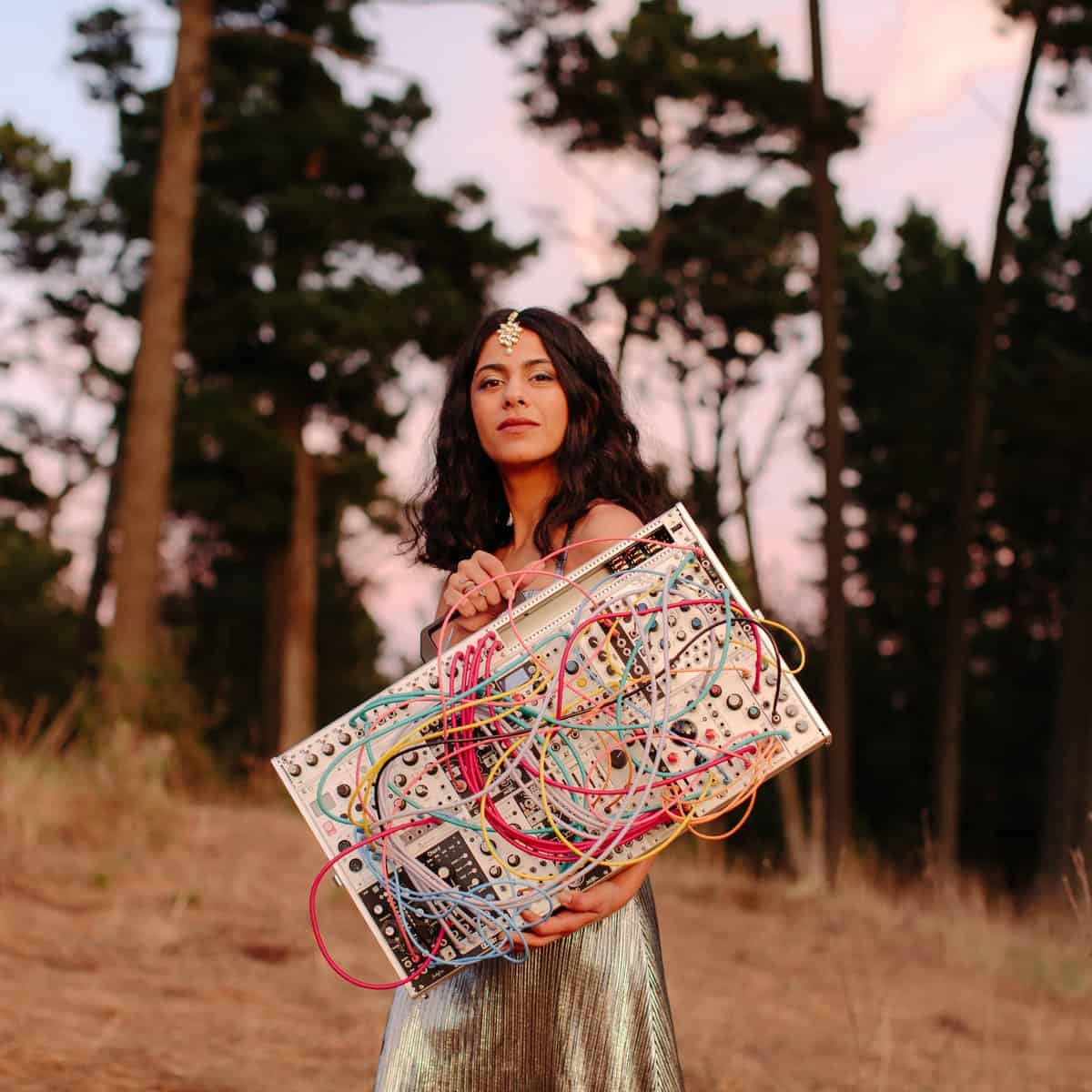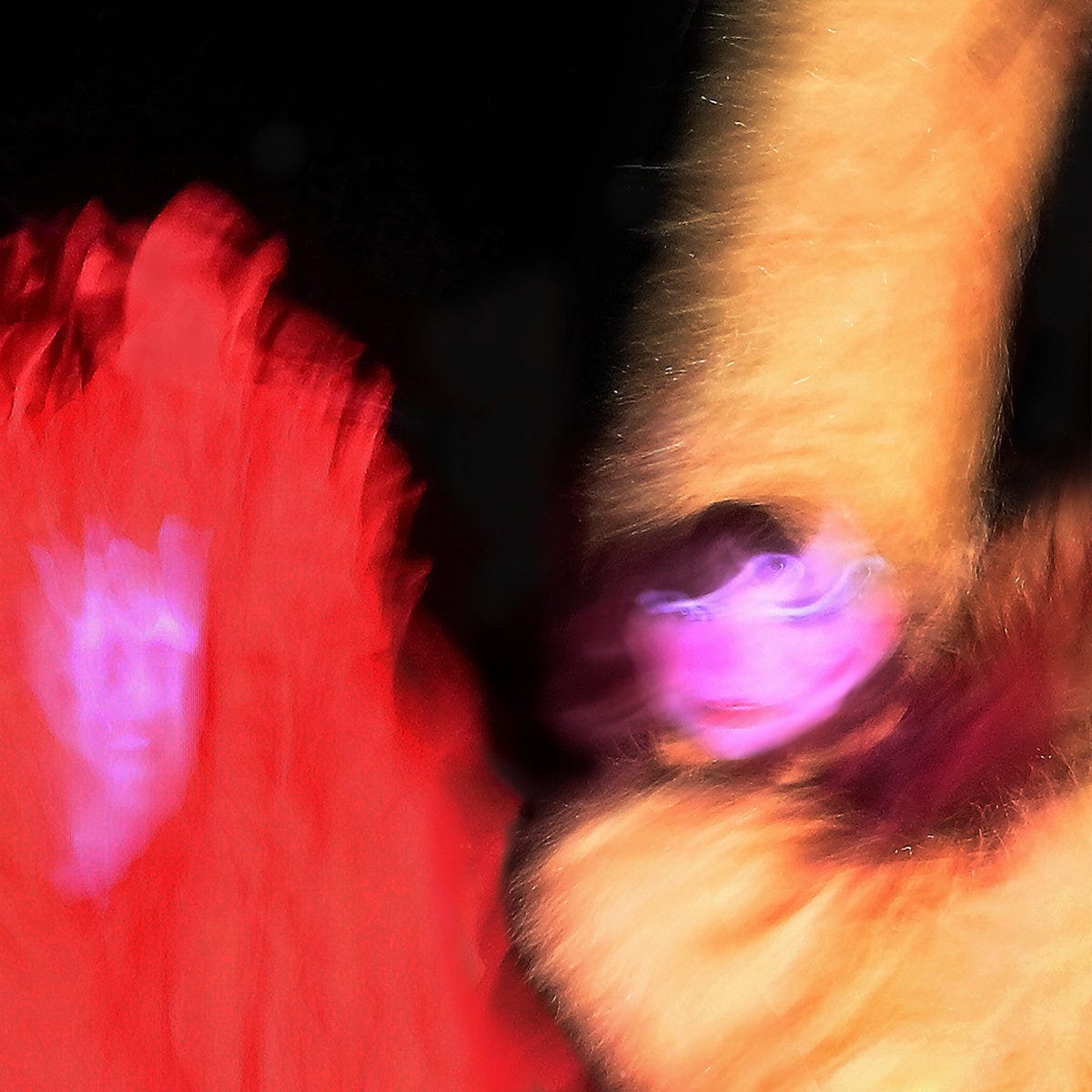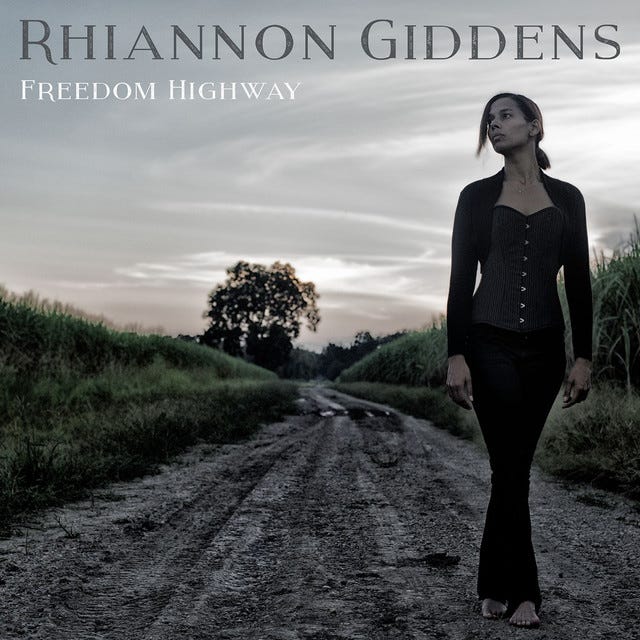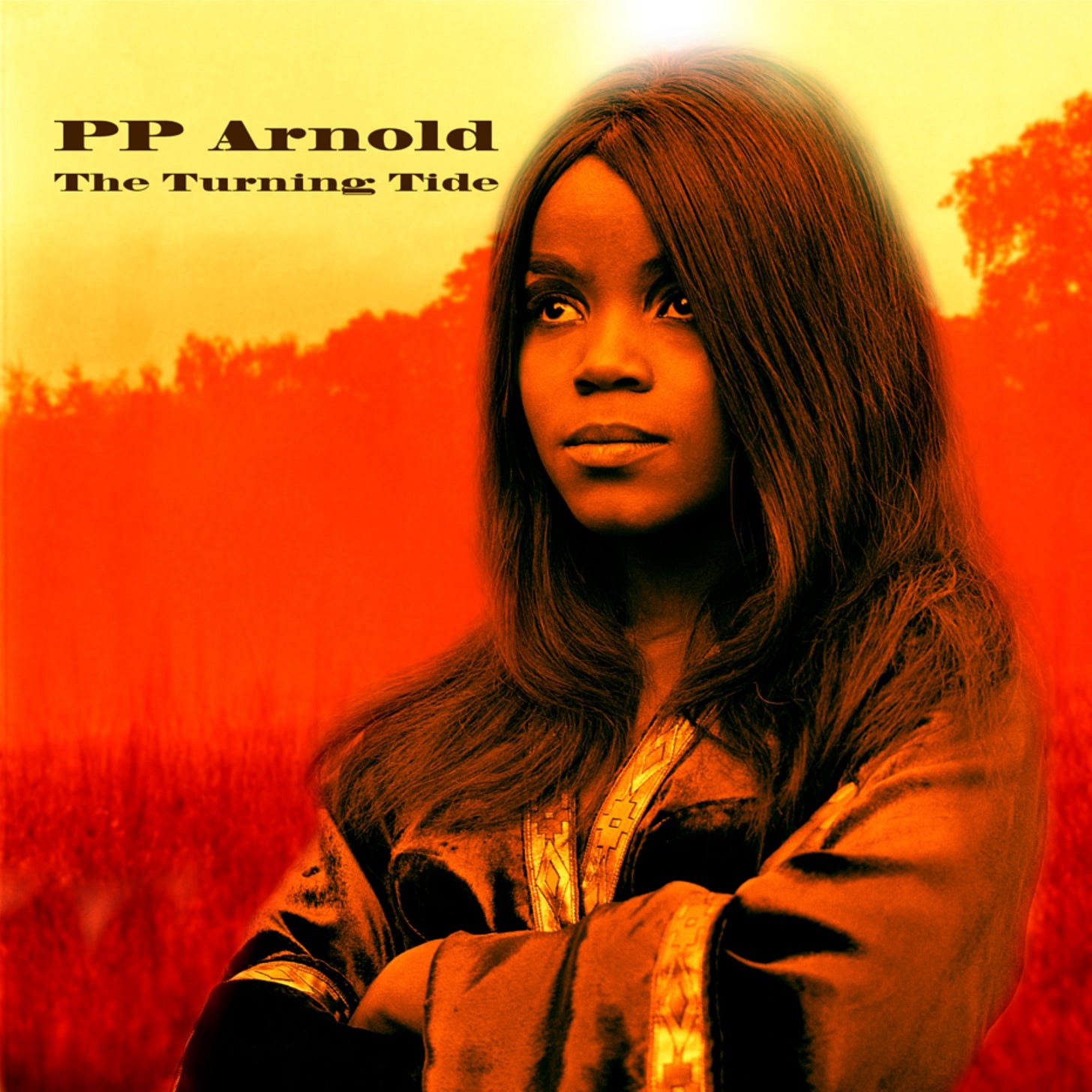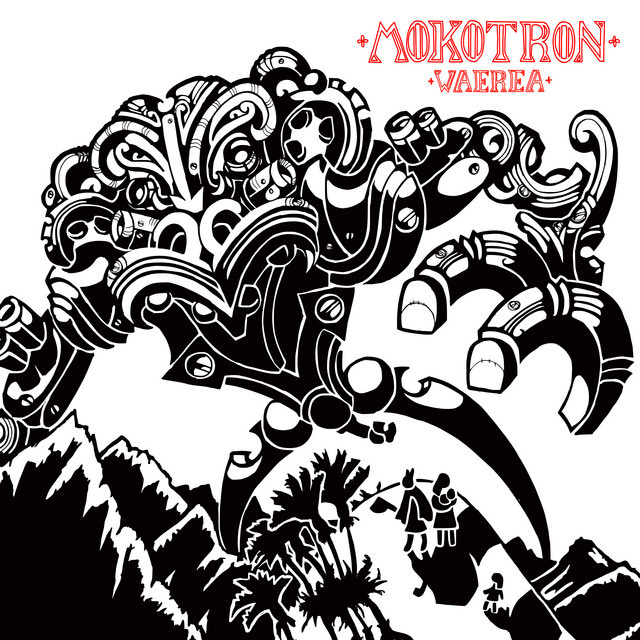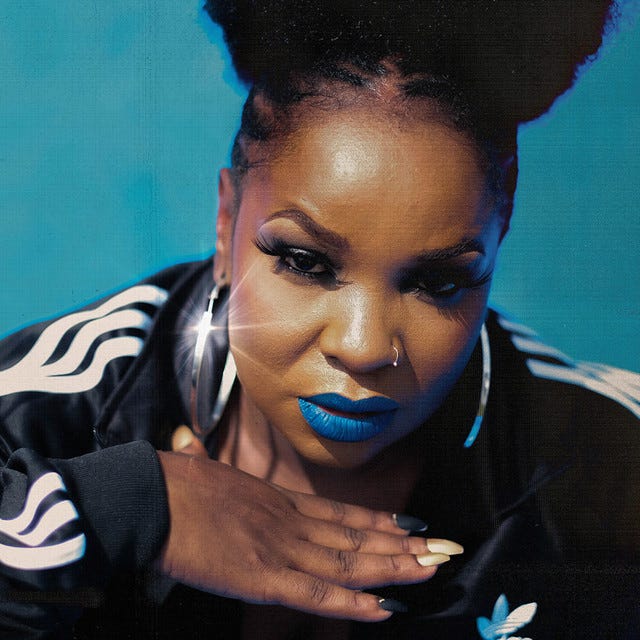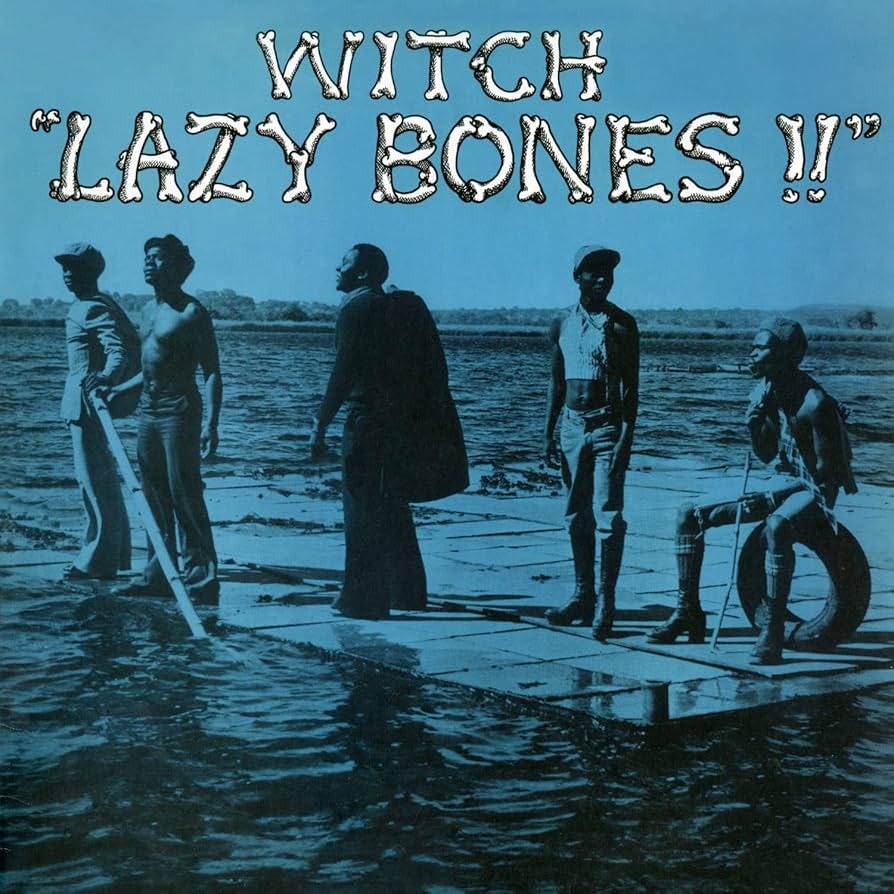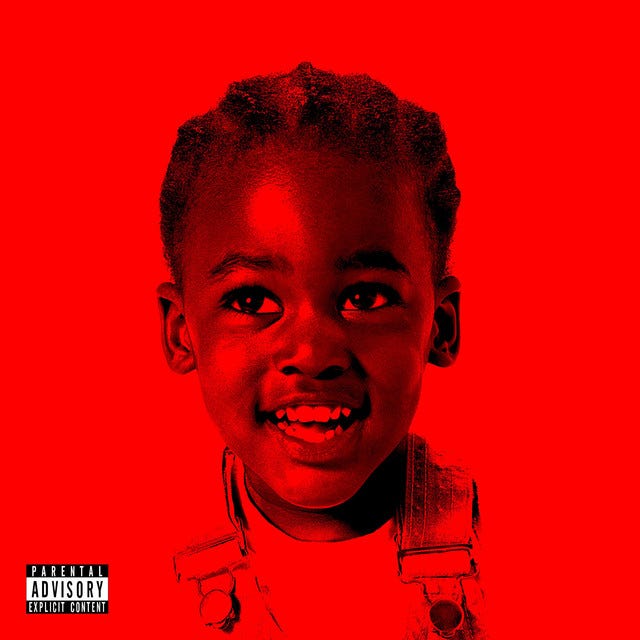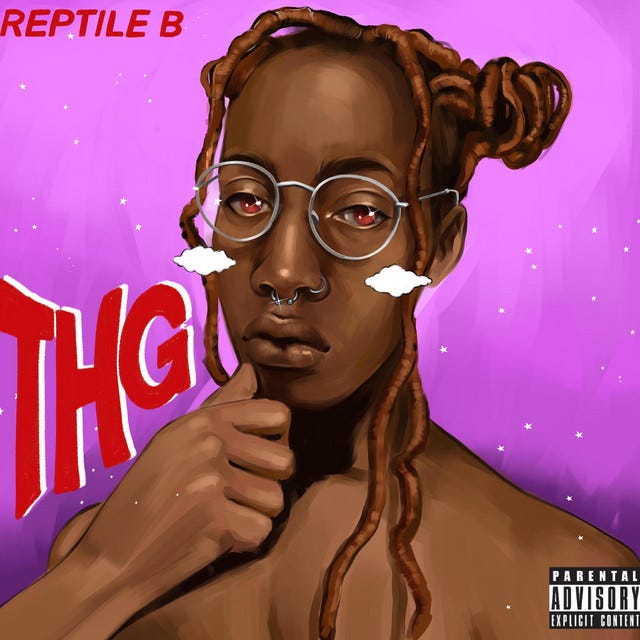Busta Rhymes, Deftone, Doechii, Beth Gibbons, Ezra Collective, Turnstile, The Prodigy… there are countless massively exciting acts to catch at this year’s Glastonbury Festival, but none of them need introducing. However, the joy of this event is that there are somewhere in the region of 3,000 artists performing over the its five days. I have trawled through every name on the lineup so you don’t have to! This is a list of my top recommendations from venues beyond the big five (Pyramid, Other, West Holts, Woodsies, and Park) as told through some excellent albums by the artists in question.
If you’re one of the lucky 210,000 odd people attending Glastonbury this year, I hope this post will help you find some true gems hiding away from the main stages. If you are one of the 8,061,790,000 odd people not attending, then please see this as a random and unrelated selection of albums I wholeheartedly recommend!
Under the Lilac Sky – Arushi Jain
Playing: Tree Stage, Sat, 1:50-2:50
Traditionally, an Indian Classical musician would study for years under a guru, an elder master of the craft who would mould the young player into a proficient musician. For Arushi Jain, it’s a little different. Relocating from Dheli to the US with her family as a youth, she was forced to leave lessons behind and start teaching herself. Applying the basics, she has been exploring various ragas. One she landed on early was the raga bageshri, which she used as a means to explore her artistry. Depicting the emotions felt whilst waiting the be reunited with a loved one, the bageshri is the perfect form for Jain to lay out her melancholic innovative approach. Another aspect that sets Jain apart from tradition, is her choice of instrument: a modular synthesiser!
Under the Lilac Sky is Jain’s debut, released in 2021. Inspired by dusk, this a 48-minute piece of ethereal music divided into six tracks. Jain’s vocals and synth meld together in a delicate layered landscape of rich shimmering textures. This is a soothing and moving piece of work, exploring both modular synthesis and Hindustani Classical music, as well as the potential of vocals bridging the two.
Mostly recorded at the Alsisar Mahal palace in Rajasthan, this album sees Jain build an atmosphere from three ragas – all evening forms, created to be played between day and night: des, khamaj, kafi, and durga. Throbbing bass lines and ethereal melodies make for a deeply meditative experience.
slif slaf slof. – Mermaid Chunky
Playing: Greenpeace, Sat, 18:45-19:45, & Lonely Hearts Club (Silver Hayes), Sun, 15:30-16:30
The two members of Mermaid Chunky – Moina Moin and Freya Tate – first met playing in a youth Ska orchestra near Stroud in Gloucestershire whence they hail. One day, all the girls in the orchestra broke off to start a band before gradually allowing life to take hold and drifting away to university one by one, until just two were left, Moin and Tate. Thus, Mermaid Chunky was born in 2016.
Fast forward six years to 2022, Brooklyn, none other than James Murphy (you know, the guy from LCD Soundsystem) is standing in line at a hipster coffee shop near his office when he hears something compellingly fresh. The shop is playing NTS radio, and host Zakia has just spun the tune Friends from Mermaid Chunky’s debut EP, VEST. Murphy is immediately taken, he shazams the track and runs back to his desk where he reaches out to the band to ask if they’ll support LCD on their upcoming London show at Brixton Academy. He would go on to offer them a contract with his label DFA. This is where they would release their first album slif slaf slof in 2024.
In the six years between our first two paragraphs, Mermaid Chunky were busy honing their craft around the local and UK scene. Now, if you’re new to the band, it is worth mentioning at this stage, they are not a traditional music duo. Rather, they would better be described as a two-person performance art collective. A Mermaid Chunky show will comprise extraordinary extravagant costumes, fabulous decor, and creative performance as well as their brilliant music.
slif slaf slof is an excellent encapsulation of their energetic universe. A hedonistic blend of earthy Folk, Club bangers, Psych synth epics, space Reggae, and Spoken Word, it goes off in many directions, not least in the far-out lyrics which tell long and winding stories of mind-bending proportions. Beyond the seeming experimental wildness, this is a fantastically constructed album from a band with nearly a decade’s experience in their back pocket.
Freedom Highway – Rhiannon Giddens
Playing: Acoustic Stage, Sun, 18:30-19:30
There are many things – both positive and negative – to say about Beyoncé’s album Cowboy Carter, but arguably the best thing about it, is that it introduced Rhiannon Giddens to the mainstream world. Both her banjo and viola stylings can be heard on the album’s excellent lead single Texas Hold ’Em. This was a new break, for sure, but Giddens had already been going a long time by this stage!
Giddens has been steeped in American Folk music from an early age, picking up fiddle, viola, and her main instrument banjo as well as learning to sing young. She spent her early career playing Folk shows around the US as well as in Ireland and Scotland. Her first big break came in 2005 when she attended the first edition of Black Banjo Then and Now Gathering where she met Súle Greg Wilson and Don Flemons with whom she founded The Carolina Chocolate Drops – together, they’d go on to win a Grammy for their album Genuine Negro Jig.
The Chocolate Drops eventually disbanded in 2014, at which point Giddens decided to persue her solo work, releasing her debut Tomorrow Is My Turn to great acclaim in 2015. Today, we’re enjoying her second effort Freedom Highway, released in 2017.
Named for its title track, a protest song originally written by Pops Staples for his family band The Staples Singers. Here, it’s given a Folky twist as Giddens’ banjo shimmers beneath the Soul horns as she sings accompanied by Bhi Bhiman. The rest of the record is a lovely, understated swinging delight of an album. Strutting through nine originals and three covers, the aforementioned Freedom Highway, a very tender Mississippi John Hurt numbers, and Birmingham Sunday (written by Richard Faiña and made famous by Joan Baez).
Gidden’s voice is stunning here, and her banjo playing is peerless. Behind the dazzling musicianship hide some hard-hitting political lyrics, all delivered with due passion by one of American Folk most exciting contemporary players.
The Turning Tide - P.P. Arnold
Playing: Acoustic Stage, Sun, 16:00-16:40
In 1964, an Arnold family acquaintance Maxine Smith arranged an audition for herself, P.P. Arnold, and a third friend Gloria Scott to join the Ike & Tina Turner Review as so-called Ikettes (backing singers). The three were successful and joined the Review immediately. Ike Turner was famously an extremely abusive leader which resulted in Arnold growing disillusioned with the situation, meaning she was primed to leave by the time they embarked on their first foreign tour, supporting the Rolling Stones on a number of UK shows in 1966.
During the tour, Arnold started up a whirlwind affair with none other than Mick Jagger who suggested she stay behind once the shows were done. Assessing her situation, Arnold decided to hang back in London and try to launch a solo career. Ike Turner’s furious reaction to the news only hardened her resolve.
Arnold signed to Immediate Records, a label founded by Stones manager Andrew Oldham. Here she recorded her solo debut The First Lady of Immediate, released in 1968, which saw some substantial success in a UK now fully enamoured with Soul and R&B.
In 1970, Immediate folded, leaving Arnold out in the wilderness. It was during this time she met the BeeGees, in particular Barry Gibb who offered to produce an album for her on RSO Records, Eric Clapton was also attached. They recorded eleven tracks - two of which quickly saw the light of the day as singles. The rest would ultimately be shelved by label boss Robert Stigwood who didn’t see the commercial value in the project. “Everyone thought of me as PP Arnold the little pop singer, but there I was in the studio doing all these hard R&B numbers.”
Nearly four decades later, in 2017, Arnold was finally able to regain ownership of the recordings and release them as her third solo album The Turning Tide.
This is pure classy Soul with Pop production and Rock’n’Roll licks. Arnold’s voice is exceptional and she wields it with precision and skill.
WAEREA - MOKOTRON
Playing: Nomad (Shangri-La), Sun, 1:00-1:45
Mokotron is Tiopira McDowell, a senior lecturer in Māori Studies at the University of Auckland. He also happens to be an exceptional producer, making Breakbeat and Sub-Bass magic accompanied by a taonga puoro - a traditional Māori wind instrument - and Te Reo Māori - Māori songs and chanting.
Waerea is McDowell’s debut, released in 2024. It explores ancient futurism and a present free from colonialism. He does this by deconstructing Western musical structures and rebuilding them through a Māori lens.
McDowell’s father sadly passed around the same time Queen Elizabeth did. The emotions and reactions around both these deaths formed something of an impetus for him to use music to explore the experience of living in Aotearoa, specifically Ōtautahi and Ōhinehou (Christchurch and Lyttelton) where governmental oppression of Māori citizens is routine.
Waerea is a challenge to any new visitors, intended to scope out their intentions, which if good, will clear the way for an welcoming ceremony. This record fully lives up to its name, it is a challenge to Western Bass influences which gradually lets them in to become something greater than they ever were.
Yallah Beibe – MC Yallah
Playing (with Debmaster): Lore (Shangri-La), Fri, 4:15-5:00
Described as “an international patchwork of futuristic cyber-rap experiments”, Yallah Beibe is MC Yallah’s second effort. It was released in 2023. Her first record Kubali was made entirely in collaboration with French producer Debmaster and released in 2019. The two started work on the follow up almost immediately but Covid quickly scuppered their plans.
Rapping since the late 1990’s, Yallah has long been a staple of the Kampala music scene. Despite a short hiatus which resulted in a fiery comeback in 2018, she has earned a spot as one of Uganda’s most respected rappers and a key artist in the legendary Nyege Nyege Records stable. Born in Kenya, but growing up in Kampala, she switches effortlessly from Luganda, to Kiswahilli, Luo, and English in her fiery, yet playful flow.
As lockdown eased up, Yallah took the beginnings of the record she had started making with Debmaster and sought collaborations with Scotch Rolex, Chrisman. Cobbeling everything together, she succeeded in releasing her sophomore number Yallah Beibe.
Despite the Covid-shapped hiccups in production, this is an extraordinary album of intense and ridiculously skilful rapping backed by truly incendiary instrumentals.
Yallah is now reunited with Debmaster and they have been touring the world together fairly solidly since the record was released. I was very fortunate to catch them in Birmingham a few months back. Absolutely stunning gig!
Lazy Bones!! – WITCH
Playing: Shangri-La Stage (Shangri-La), Thu, 18:30-19:15 & Greenpeace, Fri, 15:15-16:15
You know about Zamrock! The Zambian Rock’n’Roll movement from the 70s, largely inspired by western acts like The Rolling Stones and Black Sabbath. Performed by youths in high heeled boots and bellbottoms putting a distinctive Zambian spin on the era’s popular Rock music.
WITCH were at the forefront of the scene. Led by Jagari – an Africanisation of ‘Jagger’ – and dressed in matching floppy flowery witch hats, they punted out some exceptional Psychedelic Fusion Rock.
Lazy Bones!! is their third record, released in 1975. Despite being nearly 50 years old, it sounds ridiculously fresh, such is the timeless nature of Zamrock! Veering from otherworldly Psychedelic space travel to grizzly earthy Proto-Metal riffs, the energy of the music is infectious, irresistibly danceable.
WITCH disbanded in 1985, and over the years, Kims, Jones, Giddy King, Music, and Star McBoyd all sadly passed away, leaving only frontman Jagari of the original lineup. He gave up on music to become a gemstone miner.
In 2012, filmaker Gio Artotta randomly heard some WITCH on a record he’d picked up in a second-hand store. He was so taken by the music that he travelled to Zambia to track down Jagari for a documentary about the band. He paired him up with two young European musicians Jacco Gardner, and Nico Mauskoviç. Jagari started teaching them the WITCH repertoire, with some help from fellow Zamrock legend Victor Kunda Kasoma of The Oscillations.
They were eventually joined by Stefan Lilov, JJ Whitefield, and semi-original member Patrick Mwondela who was in the band from 1980 (after Jagari had left to become a music teacher). Now ready, they embarked on WITCH’s first ever tour outside of Zambia! A huge success, they have carried on playing and touring to this day.
Being Poor Is Expensive – Bashy
Playing: Lonely Hearts Club (Silver Hayes), Fri, 19:00-19:45
Over the years, the likes of Jay-Z, Eminem, André 300, and most recently Lil Baby, have all claimed they never wanted to be old rappers. Far be it for me to say the passage of time has proven them right, but it is a sentiment with which I might tend to agree; although a handful of rappers have been proving me wrong of late. Chief amongst them, Bashy with his record Being Poor Is Expensive, released earlier this year. As he creeps up on his 40th birthday, we find Bashy more pensive and in tune with himself than ever.
In 2007, at the ripe old age of 22, Bashy hit the UK scene with his track Black Boys. Already wise beyond his years, the tune was aimed at inner city youths, reminding them of positive role models in an effort to combat the rise in knife crime of the time. This track would get the attention of (the now disgraced) Noel Clarke who got him involved in the soundtrack for his seminal film Kidulthood. This marked his first forays into cinema, a world he took to as an actor, still active today. He has enjoyed a number of questionable roles (watch Cockneys vs. Zombies, it’s good stuff!) as well as some classics such as Black Mirror and Top Boy.
Being Poor Is Expensive is Bashy’s first album in 15 years, and it shows a depth of wisdom which can only have been accumulated over several decades. Treating topics as varied as Black Britishness, Windrush, generational difference, crime, and life in North London, there are some deep bits - in fact, its mostly deep bits, but there are also excellent moments of levity with some classic old school Hip Hop one-liners. As Bashy takes us through the full kaleidoscopic spectrum of Black British music, he deftly shows of his mastery of the craft, chopping and changing his style, oozing class and wisdom with every lyric, leaving us in no doubt: he hasn’t been snoozing for those 15 years!
The vocals here are of course front and centre, but a special shout out goes to Toddla T’s impeccable light touch production throughout, as well as Progression’s input on a handful of tracks.
The whole album is a stunning ode to ageing gracefully and proves once and for all that Rap is ageless.
(Before anyone jumps down my throat, I would like to clarify that I don’t think 40 is old!)
THG - Reptile B
Playing (with Sister XIXI): Nomad (Shangri-La), Fri, 23:45-00:30
Reptile B describes his sound better than I ever could: “I would say it’s like if Grime was a little queer and kissed Dancehall and then went home and started crying to Nirvana.”
Growing up in the East London borough of Newham, Reptile B was surrounded by the Grime and later Drill common throughout the capital. Music that would collide with a developed passion for Dancehall as well as Indie Rock and Grunge, all mixed together to create his own brand of fiery Rap.
Yet to release an album, Reptile B’s big break came with his 2020 single THG. Originally sceptical of the monotony he heard in Drill, it was when he stumbled upon a random Drill beat on Soundcloud that he changed his mind. This beat would form the basis for THG, a deeply personal tune inspired by a toxic relationship. In spite of its traumatic background, THG is a huge party banger with Dubby bass lines offering a sturdy basis for B’s breathless whirlwind lyrics. Often explicit, always witty, his words shine a much needed light on the experiences of navigating the music industry and the world at large as a gay man, particularly in genres which don’t have the shiniest of track-records with inclusivity. And he does so will humour, attitude, and a huge amount of skill!





